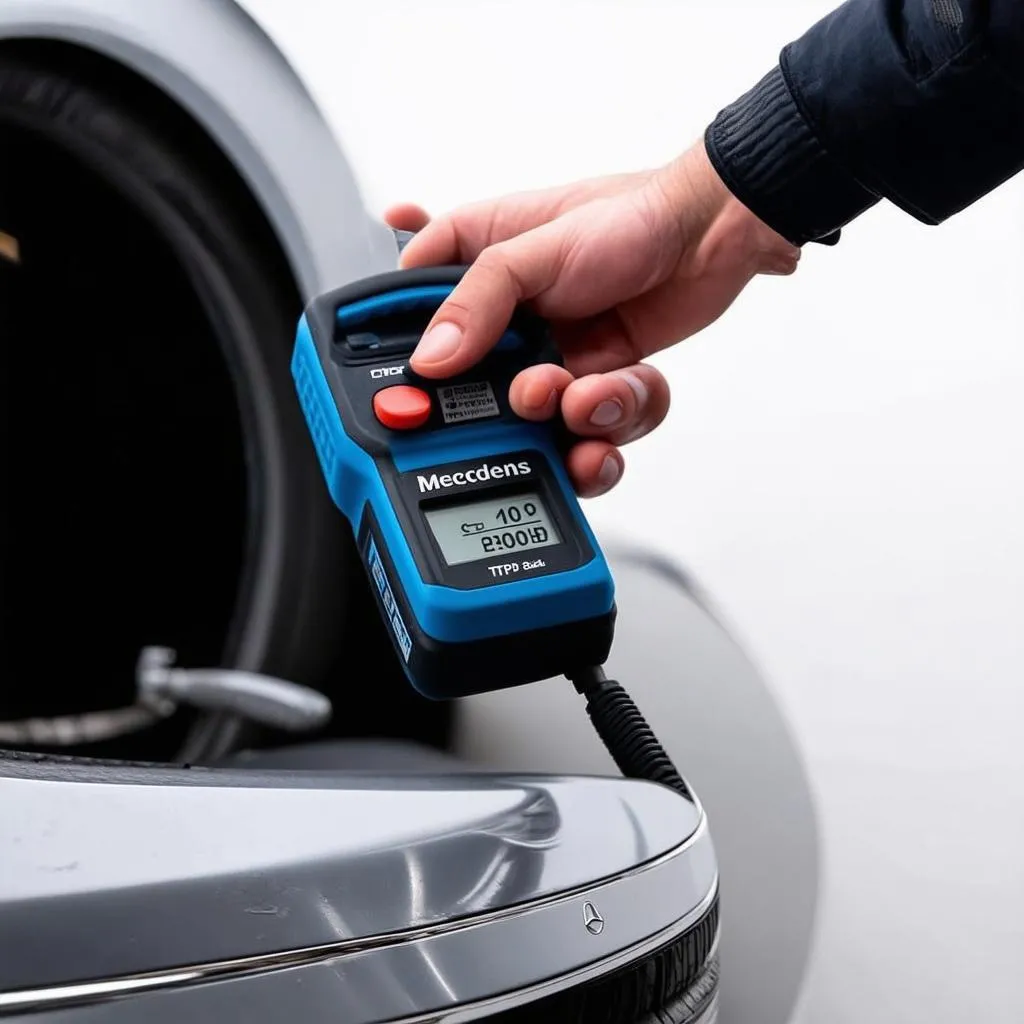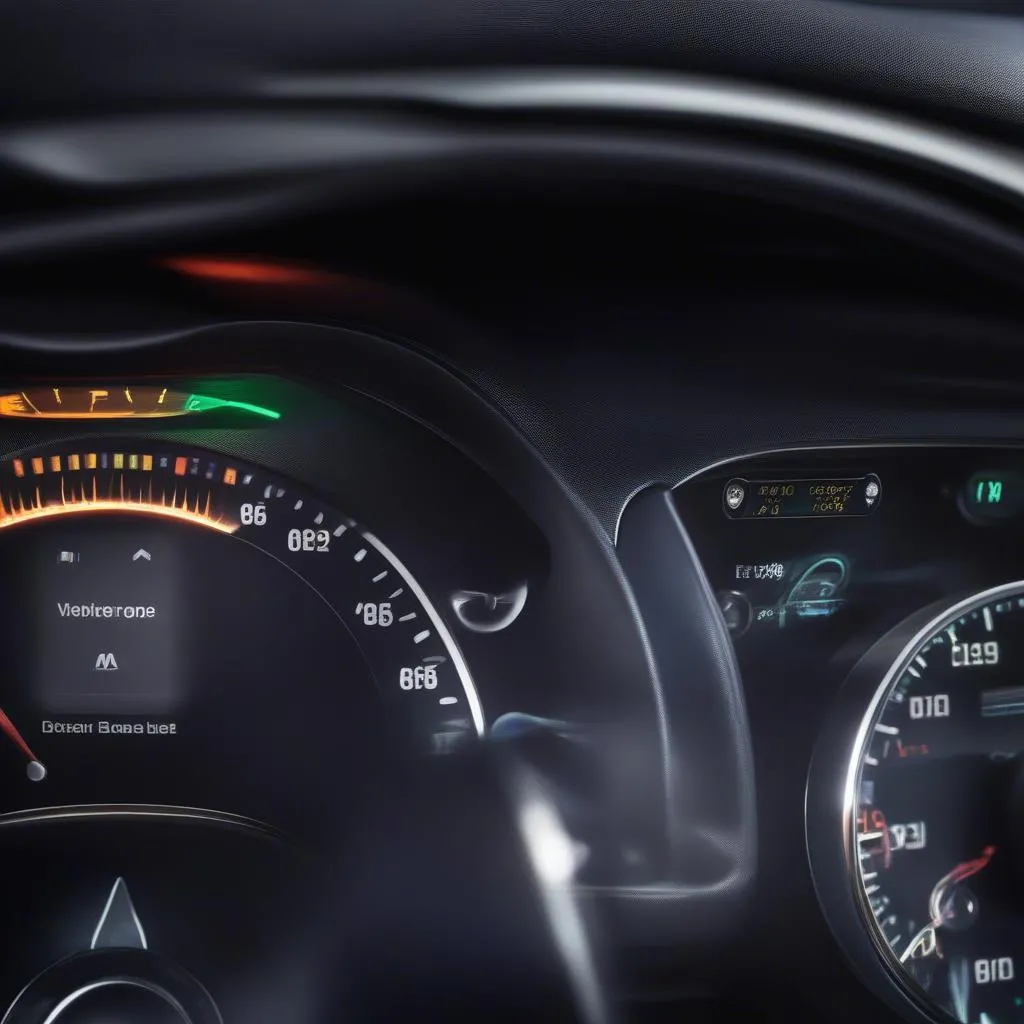Is your 1999 Mercedes ML430’s air conditioning letting you down on hot days? Don’t sweat it! This guide will walk you through common AC problems, how to diagnose them, and the steps to get your cool back.
Common AC Problems in a 1999 Mercedes ML430
Before you break out the tools, let’s identify the culprit behind your AC woes:
- Refrigerant Leak: This is often the most common issue. Leaks can occur in hoses, connections, or even the condenser itself.
- Faulty Compressor: Your AC compressor is the heart of the system, pumping refrigerant to cool the air. If it fails, you’ll have no cold air at all.
- Electrical Problems: Malfunctioning sensors, blown fuses, or wiring issues can disrupt your AC system’s operation.
- Blend Door Actuator Failure: This actuator controls the blend door, which directs airflow. If it fails, you may get stuck with heat even when you want cool air.
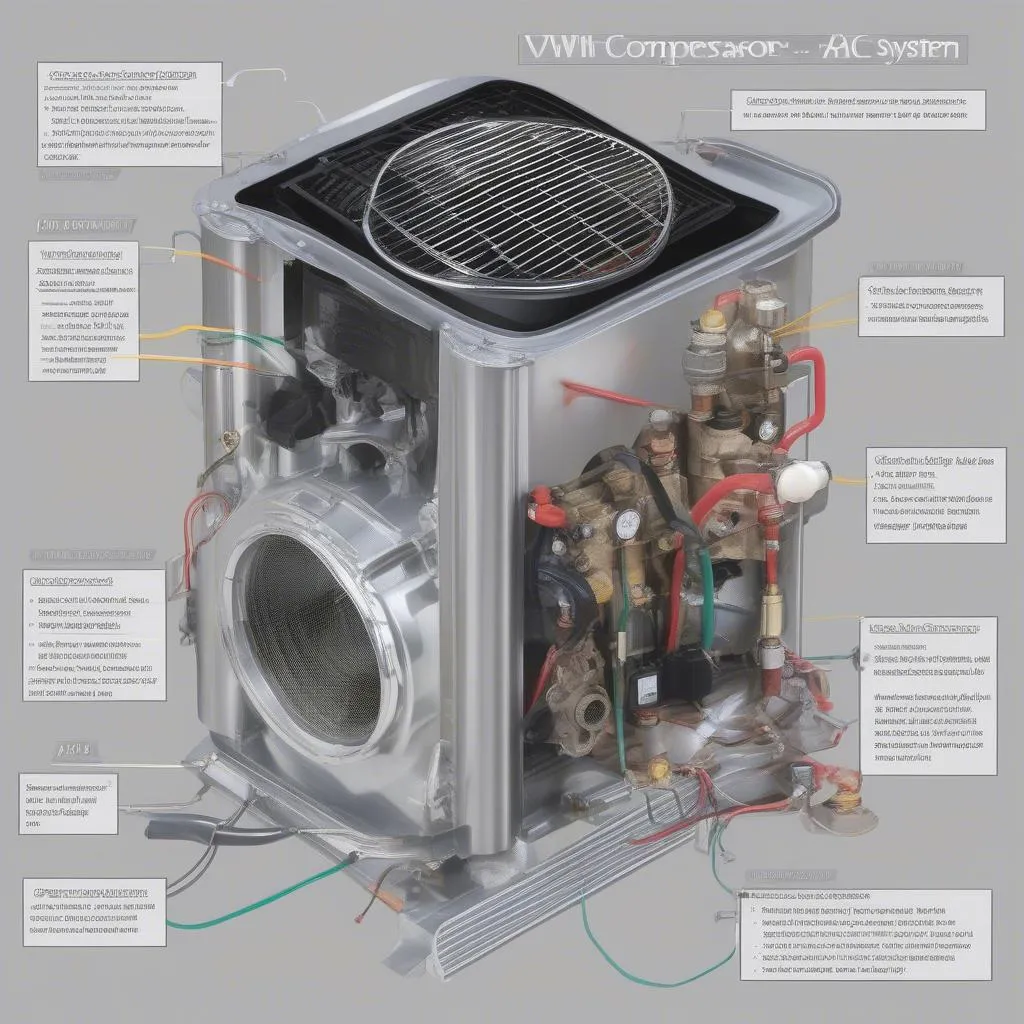 Mercedes ML430 AC Components
Mercedes ML430 AC Components
Diagnosing the Problem
- Check for Cool Air: Start the engine, turn the AC to max cool, and feel the air coming from the vents. If it’s barely cool or just blowing warm air, you likely have an issue.
- Listen for Unusual Sounds: Strange noises from the AC system when it’s turned on, like clicking or grinding, can indicate a problem with the compressor or other components.
- Inspect for Leaks: Visually examine the AC lines and components for any signs of oil residue or leaks. A refrigerant leak detector can also be used.
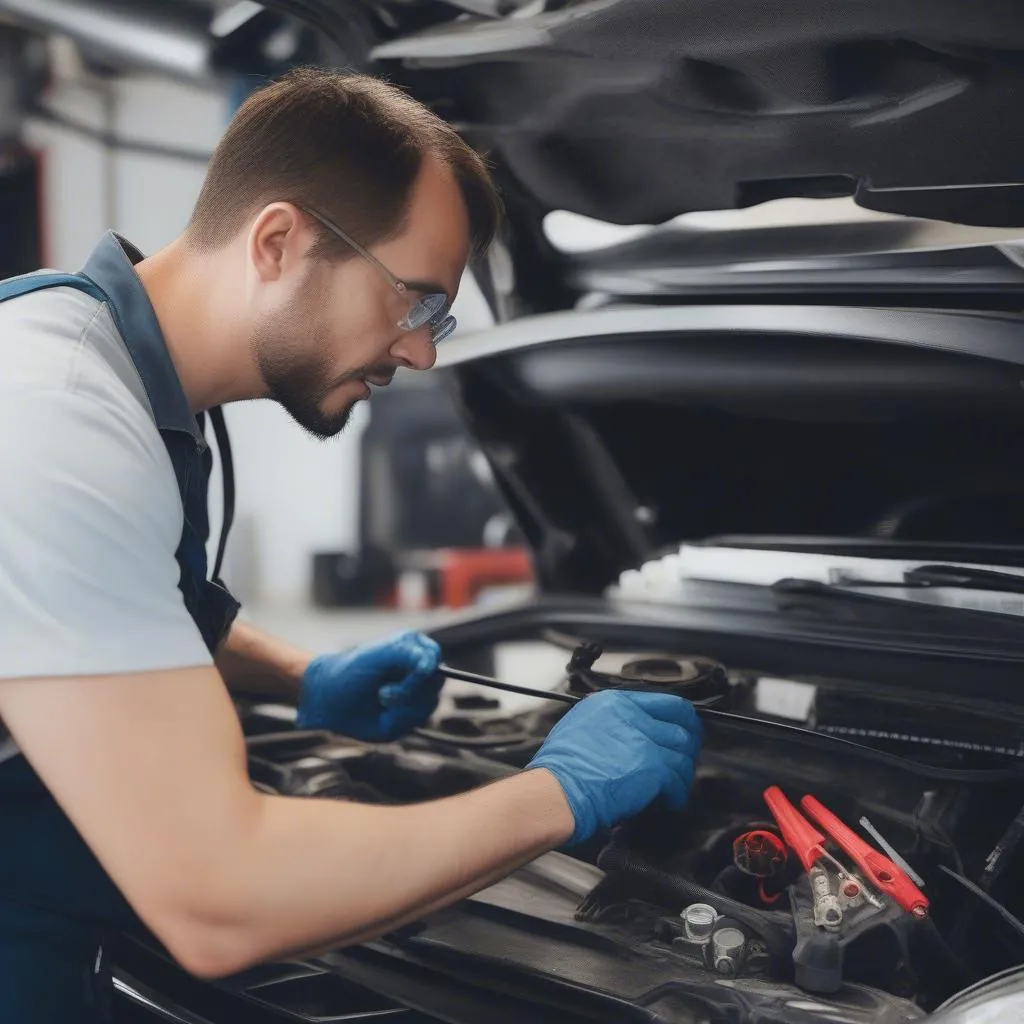 Mechanic Inspecting Car AC System
Mechanic Inspecting Car AC System
Tools and Materials You Might Need
- Refrigerant leak detector
- AC pressure gauge set
- Refrigerant (if needed)
- Basic hand tools (screwdrivers, wrenches)
- Safety glasses and gloves
Fixing Common AC Issues
1. Recharging the AC System:
Note: This should only be done if you’ve identified a minor leak and had it repaired. Recharging a system with a major leak is just a temporary fix.
- Gather Supplies: You’ll need an AC recharge kit compatible with your ML430’s refrigerant type (likely R134a).
- Connect the Recharge Hose: Follow the instructions on the recharge kit to connect the hose to the low-pressure service port on your AC system.
- Charge the System: Slowly add refrigerant to the system, monitoring the pressure gauge to avoid overfilling.
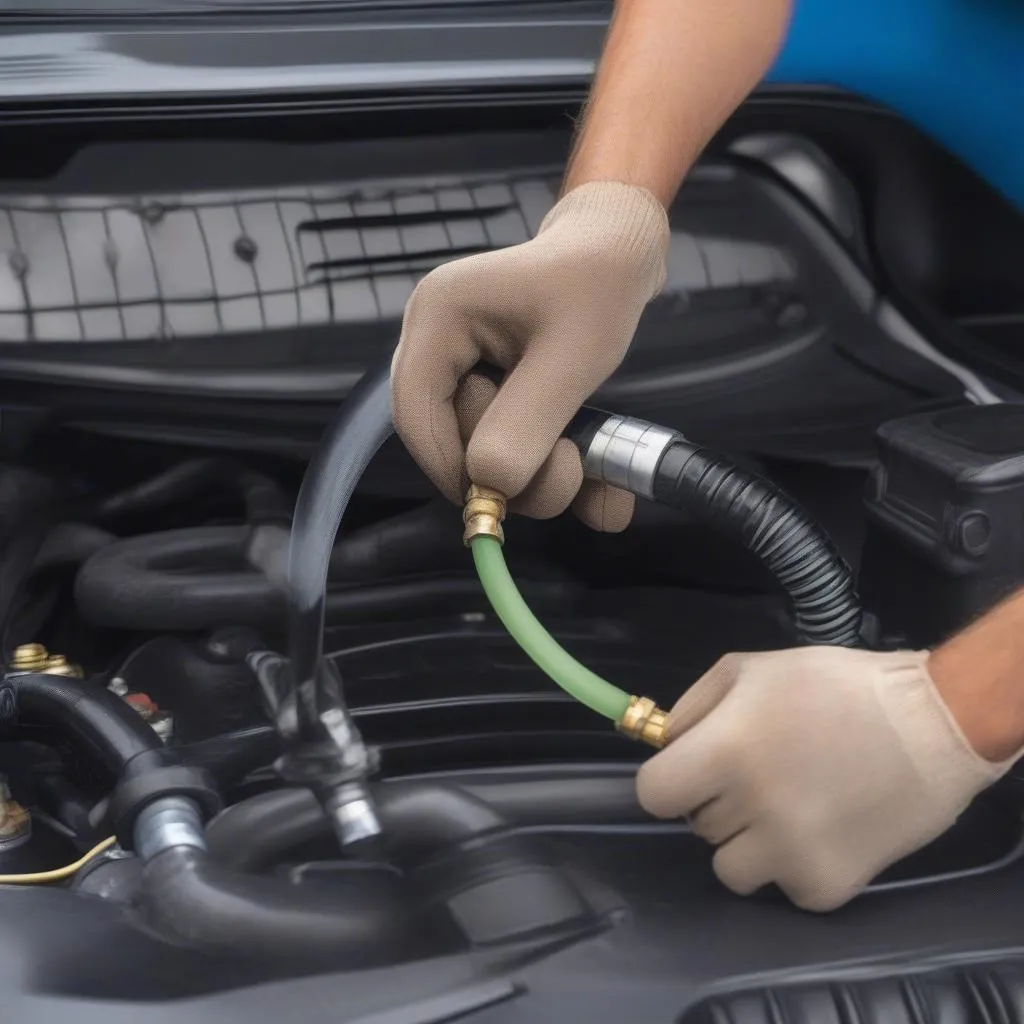 Recharging Car AC System
Recharging Car AC System
2. Replacing a Faulty Component:
- Compressor, Condenser, Evaporator: These require more advanced mechanical skills. Consider seeking professional help unless you’re confident in your abilities.
3. Addressing Electrical Problems:
- Check Fuses: Locate your ML430’s fuse box (usually under the hood or dashboard) and consult your owner’s manual to find the AC system fuses. Replace any blown fuses.
- Inspect Wiring and Connections: Examine wiring harnesses and connectors for damage or corrosion.
FAQs: 1999 Mercedes ML430 AC Troubleshooting
Q: My AC blows cold then warm intermittently. What could be wrong?
A: This could be a sign of a few things:
- Low refrigerant: A slow leak can cause the system to cycle on and off, leading to inconsistent temperatures.
- Faulty AC pressure switch: This switch signals the compressor to turn on and off based on refrigerant pressure. If it’s malfunctioning, it can cause erratic AC behavior.
- Problem with the expansion valve: This valve regulates refrigerant flow. If it’s stuck or malfunctioning, it can cause uneven cooling.
Q: Can I use a diagnostic tool to pinpoint the issue?
A: Yes, an OBD-II scanner like the ones offered by CARDIAGTECH can read diagnostic trouble codes from your ML430’s engine computer. These codes can provide valuable clues about what’s wrong with your AC system.
Q: How often should I have my AC system serviced?
A: It’s a good idea to have your AC system inspected and serviced every 1-2 years, or as recommended in your owner’s manual.
Conclusion
Fixing your 1999 Mercedes ML430’s AC can be a rewarding DIY project if you’re dealing with basic issues. Remember to always prioritize safety, and don’t hesitate to consult a qualified mechanic if you’re ever unsure about a repair. Stay cool out there!

